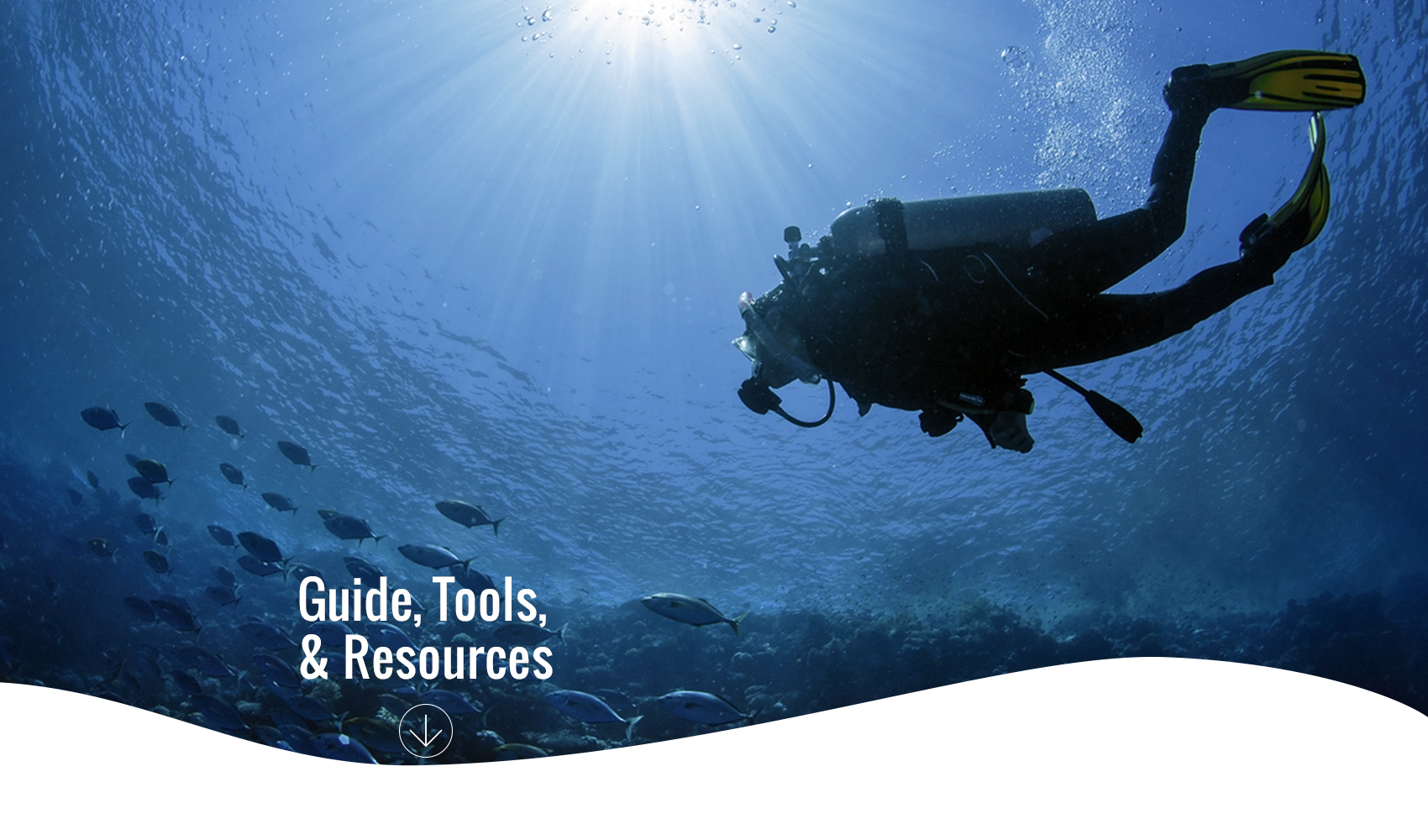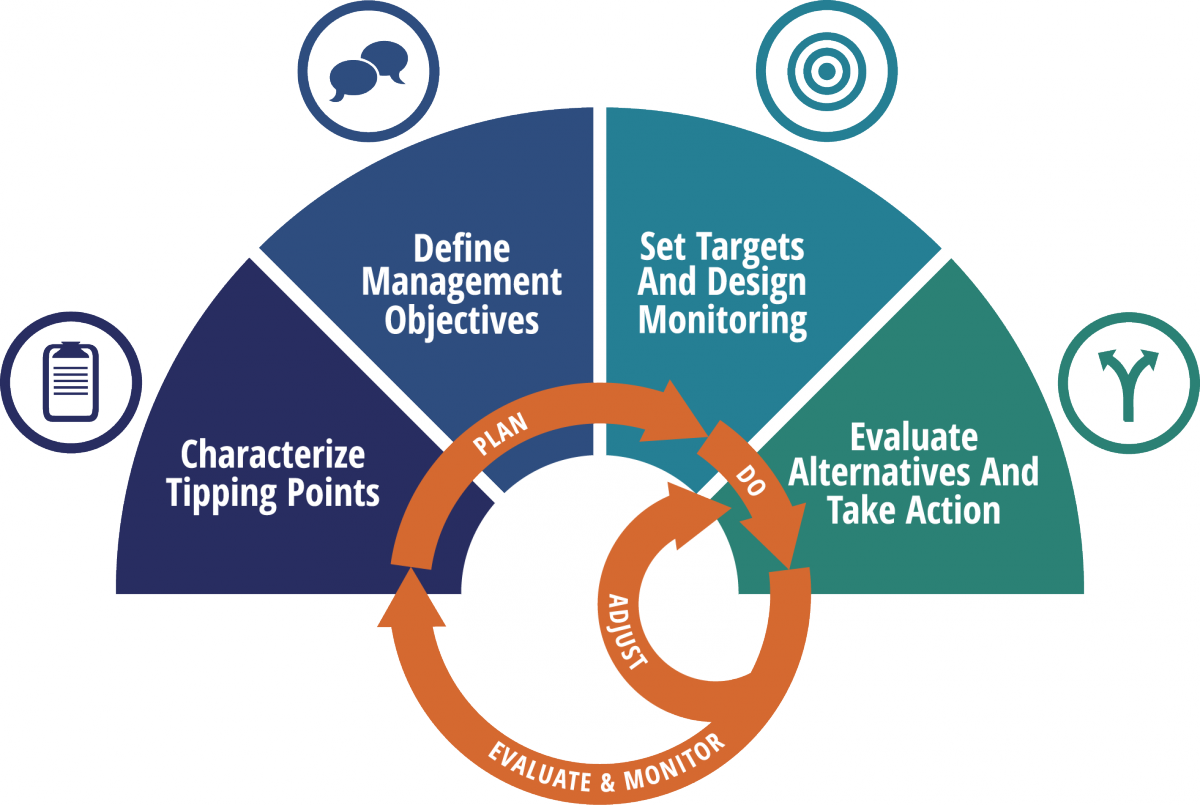Guide, tools, & resources
Here you will find additional resources to help you incorporate tipping points science into your own management context, connect you to other scientists and managers that are implementing tipping points science in their own work, and guide you towards the best tools to use for your specific science and management needs. The resources below offer a deeper dive into making tipping points science work for you, please dive in and explore!
Apply to our upcoming training!
Receive hands-on training in cutting-edge scientific and management strategies to better understand and cope with the potential for dramatic change in the ocean or coastal ecosystem where you work. With generous support from the Gordon and Betty Moore Foundation, we are offering an all-expenses paid 3-day training in Santa Barbara, CA, November 1-3, 2017. Learn more about how to apply on our Community of Practice page.

